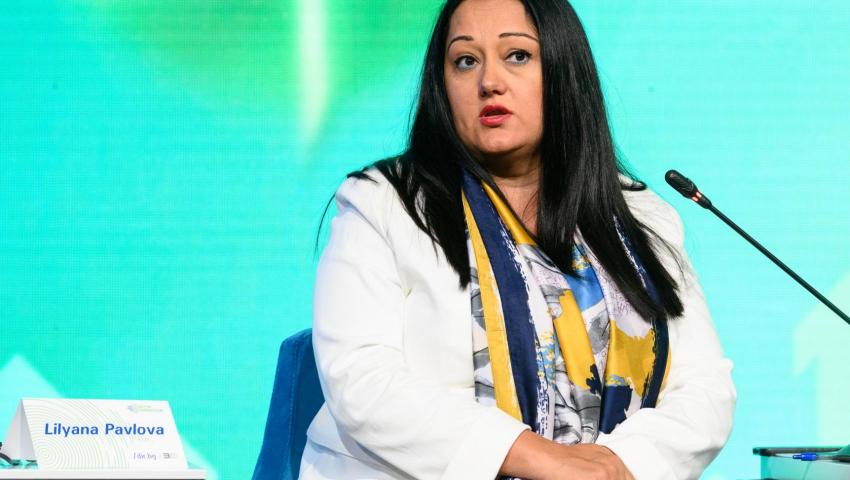Liliana Pavlova: The war in Ukraine should be a catalyst for the green transformation

Source: Nikolay Iliev/ Dir.bg, archive
How the war will affect Europe in the coming years depends on many factors. I will not dwell on all of them, but only on one element - good policies. They set out how the loss of wealth is distributed between citizens and businesses, how we might make Europe more resilient and how we might think towards a sustainable recovery. And most importantly - to preserve the competitiveness of Europe, which for many reasons is under great question. The war has already made the EU poorer, what Europe had to pay for energy imports alone reduced GDP by 3 to 3.5 percent. This was said by Liliana Pavlova, vice president of the European Investment Bank (EIB), during the event "The World in 2023", organized by "The Economist" magazine.
In her words, quoted by BTA, forecasts are difficult, but important and useful for everyone.
Pavlova pointed out that the EIB, on the one hand, is a European institution that studies European policies, on the other hand, it is a bank that has a fundamental commitment to be with governments and businesses, precisely in difficult times and crises. "And especially the last 12 months have been an extremely difficult period in Europe. Just when we thought we were coming out of the previous crisis and the recovery was underway, unfortunately the war in Ukraine proved not only to put a brake on the recovery, but also opened new crises - economic, humanitarian, energy", said the vice president of the EIB.
According to her, this increasingly necessitates the need for a common European response and a common solution for businesses and governments together.
"If there was no fiscal policy and support, Europe would be in a deep recession. Today we can say that the fears of a deep recession and an energy blackout were too pessimistic," noted Pavlova.
According to her, now is the time to do quality planning on the steps forward and what is the right sequence of actions to save energy, invest in renewable sources, stimulate innovation, especially those in green technologies.
"And if the pandemic was a catalyst for digitization, then the war must be a catalyst for green transformation, decarbonization and addressing climate-related measures," said Pavlova.
She added that the EIB's commitment is to mobilize 1 trillion euros by 2030, and to support the implementation of the European REPowerEU plan, which is 300 billion euros, they are mobilizing 30 billion euros.
"Our economic team makes frequent analyzes and forecasts of corporate investments - uncertainty and high energy costs deter these investments at the moment," informed the EIB vice president.
According to her, political instability in our country is an additional element that complicates and reduces investment incentives. "But despite everything, if we do not encourage private investments, those in energy efficiency and cost reduction, we will not be able to maintain the competitiveness and sustainability of the European economy," concluded Pavlova.
